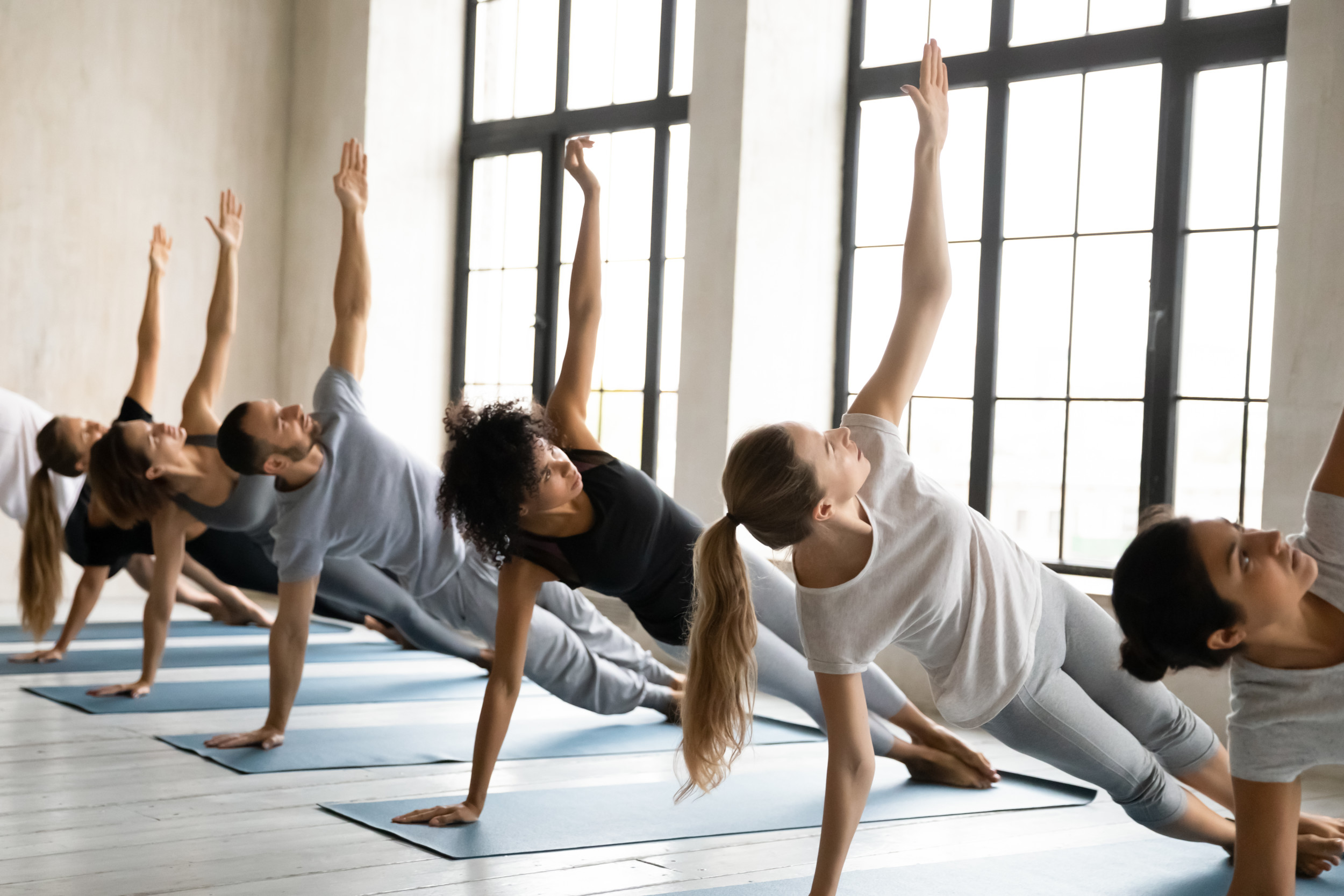Interested in Pilates? Hear About the Mind-body Wellness Benefits From Our Partners at Classpass!


6 Minutes

Team Curative

Jan 24, 2024
When starting a new fitness journey, the key thing to remember is: you’re not alone! Group fitness classes are often a great way to reach your health goals, as it allows you to work with trained instructors in a convenient and comfortable setting. At Curative, we’ve partnered with ClassPass for our PPO+ offering, allowing Curative members to take advantage of ClassPass credits for gyms, spas, and studios.
We asked our ClassPass partners some key questions people often have about fitness and well-being, and their expert instructors weighed in below:
What are some simple yet effective ways individuals can incorporate movement into their daily routine, especially for those who may not have access to a gym?
Simple activities like taking short walks, stretching in the morning, or practicing Pilates-based movements at home are great ways to start. Pilates emphasizes bodyweight exercises, making it ideal for home workouts without the need for gym equipment.
- Jennifer McNeely, Master Pilates Teacher & Senior Sales Specialist at ClassPass
Can you share quick exercises or stretches that can be done at home or in the workplace to break up sedentary periods?
Pilates offers various exercises that suit different settings. At home or work, you can do seated spine twists, desk shoulder stretches, or standing leg lifts to break up sedentary periods. Moves like the Pilates Hundred or pelvic tilts while seated are effective too.
- Jennifer McNeely, Master Pilates Teacher & Senior Sales Specialist at ClassPass
Can you provide insights into the top fitness trends we can expect to see in 2024?
2022 was a big year for strength training, and while strength training will continue to be one of the top booked workouts on ClassPass, in 2023, we really saw the rise of low impact workouts as well.
In fact, for the first time ever, Pilates was the most popular workout of the year for 2023 with reservations for Pilates bookings up 92%. Additionally, low-impact training entered the top 10 list in 2023, up 176% from 2022.
I think we will continue to see Pilates and low impact workouts boom, as Mindbody has found average American fitness routine breaks down to be 40% low intensity training, 25% moderate intensity training, 17% high intensity training and 19% recovery.
- ClassPass

How important is it to strike a balance between cardio and strength training, and what are some practical ways to achieve this balance for different fitness levels?
It’s important to strike a balance in fitness in general — and certainly with cardio and strength training. With hybrid training (and any training in general), you should consider:
Current fitness level / training experience
Are you a beginner in both areas, or beginner in one area, or training in both for years? Be honest with yourself and start where you are. If you have less overall fitness in both areas, you will be able to handle less volume of both. Those with years of training experience in both will be able to handle more overall volume to start. What this might look like: if you are completely new to both strength training and running / cardio, you might be able to handle 2-3 workouts of each per week and your cardio sessions may be shorter at first. As your training history lengthens, you can handle much more… and can increase your intensity, volume, duration and frequency to 3-4 lifts and 3-4 runs / cardio sessions each week. No matter your training experience and fitness level, you will want to select your volume based on what is recoverable for you. If you’re a beginner, it’s not “better” to attempt 3-4 lifts and 3-4 runs each week —and end up recovering terribly and needing to skip several sessions the following week. The goal is to build your base and over time, add volume.
Realistic training frequency that actually fits your life / schedule
People tend to think “more is better.” That is certainly not the case if you’re unable to consistently hit that frequency over a long period of time (think: months, years, etc). Realistic, consistent training is better than the ideal, perfect training. When you are at your busiest, how many total days per week can you reasonably commit to?
Behavior requirements of your individual fitness goal
Identify your training / fitness goal and get realistic about what is required of that goal. For example, if your goal is to run a marathon, the demands of that fitness goal will look very different than a goal to hit big weightlifting / strength numbers. If your goal is to run a race, your cardio / running sessions will be more frequent and longer in duration —compared to a lifting-focused goal.
- Gina Kim, Certified Personal Trainer & Fitness Coach and Director of Pricing & Inventory at ClassPass
How can we promote inclusivity in fitness discussions and activities, considering diverse fitness levels and abilities?
Group fitness instructors can consider diverse fitness levels and training abilities by making sure there are multiple “levels” of movements, by demonstrating each level of the movement, and by calling out specific cues to watch out for.
- Gina Kim, Certified Personal Trainer & Fitness Coach and Director of Pricing & Inventory at ClassPass
Are there modifications or alternative exercises for those with physical limitations or restrictions?
1000% - the job of a personal trainer and any fitness instructor is to take into account the individual and consider their training readiness and history, injury and anatomy to make adjustments where needed. There are ALWAYS modifications possible. The key is to understand your history or experience level and the movement’s objective.
- Gina Kim, Certified Personal Trainer & Fitness Coach and Director of Pricing & Inventory at ClassPass
How does focusing on the mind-body connection contribute to overall well-being, and what practices can individuals incorporate into their fitness routines to enhance this connection?
Pilates places significant emphasis on the mind-body connection, fostering awareness of movement and breath. This connection contributes to overall well-being by reducing stress and enhancing focus. Integrating mindful breathing during exercises, practicing Pilates principles like concentration and control, and being present in each movement greatly enhance this mind-body connection.
- Jennifer McNeely, Master Pilates Teacher & Senior Sales Specialist at ClassPass
If you’re a Curative PPO+ member and would like more information on your ClassPass benefits, please see our ClassPass page. If you’re not a PPO+ member, and would like to learn about the benefits of ClassPass, you can take advantage of their free trial offer.












